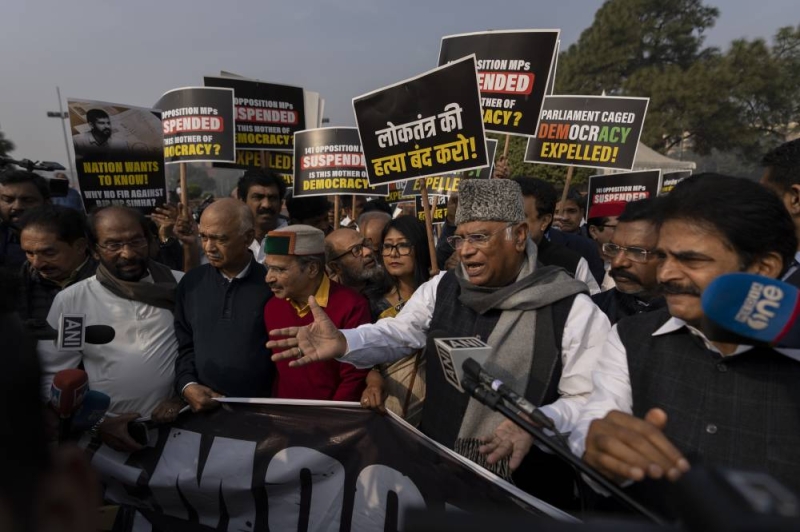Bleak impact of ODA on Nepal's education sector: Rigorous evaluation of funding proposals is called for
Enhanced quality in higher education could enable individuals to earn higher incomes abroad, encourage a surge in startups domestically, and position the country as a hub for international education
Published: 10:09 am Mar 21, 2024
Over the past decade, the Government of Nepal has received significant Official Development Assistance (ODA) amounting upto US$ 1 billion for educational development. However, there is growing concern about the lack of expected outcomes and measurable results of this investment. Although the major accountable stakeholder is the government itself, development partners seem less concerned in evaluating the real impact of their assistance, raising questions about accountability and the effectiveness of aid in this sector.
Despite some irregularities highlighted by the Auditor General in its annual reports, other major stakeholders in this space such as the National Planning Commission (NPC), Ministry of Finance (MOF), Ministry of Education and development partners (DP) like the World Bank and ADB apparently are simply concerned about keeping the 'ball rolling'. Deficiencies surfaced in almost all areas, such as learners' progress, labour market integration, economic growth and overall public experience.
The dismal impact of investments in this sector prompts critical questions on weightage of various factors. While factors like ineffective policies, faulty priorities and flawed programme design and implementation are significant contributors, the role of irregularities and corruption cannot be overlooked.
A significant portion of Nepal's urban and peri-urban population might be unaware of the substantial aid money allocated to educational reform. This is because many families in these areas opt to send their children to private schools, bearing the entire cost themselves.
A paradox exists where significant aid money aims at enhancing public education, yet everyday experiences reflect frustration. Textbooks take up to six months to reach remote areas, and public schools in many districts witness alarming dropout rates. Policy for lenient evaluation method for grade progression signals hidden troubles underneath. The government's recent provision of model questions for the school-leaving exams indicates a lack of confidence in the educational authority.
A concerning trend has emerged as many students in Nepal appear to endure school until their 18th birthday, aiming to obtain passports and migrate abroad. Recent large-scale teacher protests also underscore significant underlying issues within the education sector. Moreover, the persistence of child marriage, rape cases and suicides among students manly in the rural areas highlights grave failures in the country's education system.
A circular dynamic emerges as low-quality public education drives unskilled labour migration, leading to family breakdowns. This, in turn, exacerbates child poverty, compelling children to attend poor-quality public schools, perpetuating the cycle of educational and socio-economic disadvantage in the next generation.
A significant portion of allocated funds for education reform has been directed towards higher education. Tribhuvan University, the largest stakeholder in higher education, faces numerous challenges, including politicisation, excessive delays in examination administration, mismanagement and a lack of innovation. Furthermore, issues persist in the quality standards of teaching and research, inadequate linkages to labour market needs, and an environment unsupportive of innovation. Without addressing these issues and enhancing the quality of higher education, the country cannot realise its full economic potential and drive innovation.
A robust ecosystem of quality higher education is pivotal for a country's economic development. Enhanced quality in higher education holds the promise of transforming a nation in multiple ways. It could enable individuals to earn higher incomes abroad, encourage a surge in startups domestically, and position the country as a hub for international education. Situated amidst densely populated regions, Nepal's pleasant climate and relatively lower living-cost offer ideal conditions to be an international educational hub.
The Ministry of Education shoulders a substantial responsibility for the discussed underperformance and mass failure in the education sector. A notable shift towards local authorities has occurred for the school education, yet neither the central ministry nor the local authorities possess the requisite organisational structure, planning capabilities, or expertise to ensure the effective delivery of quality education. This structural deficiency at both levels hampers this sector's ability to meet the educational needs and aspirations of the population, demanding a revaluation of organisational frameworks and capabilities.
To address these issues at the school level, several measures can be recommended. Firstly, there should be a rigorous evaluation of funding proposals received by development partners to ensure optimal impact of resources. Policy and programme planning must be objectively tied up with desired outcomes and be responsive to changing social and locational realities. Moreover, heads of education in local authorities should possess a blend of policy, administrative and teaching expertise rather than solely being civil servants. Result-oriented teacher training programmes and timely updates in curriculum are also essential.
Indeed, for higher education, prioritising research, fostering strong industry-academia partnerships, updating curricula to reflect current needs, and linking teaching and research to innovation and entrepreneurship are crucial steps. Introducing new, timely courses can further enhance the quality of education, offering hope and optimism for the Nepali society by equipping students with the skills and knowledge needed for success in today's dynamic global landscape. These measures can contribute significantly to uplifting the higher education sector and fostering a culture of innovation and progress in Nepal.
Dr Bhattarai is an expert in 'education and development' and can be reached at lok.bhattarai111@gmail.com



